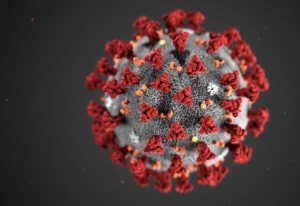By NewsDesk @bactiman63
In a follow-up on the new variant of the virus that causes COVID-19 (SARS-CoV-2) that has been identified across the South East of England, Chief Medical Officer for England, Professor Chris Whitty released the following statement:
As announced on Monday, the UK has identified a new variant of Covid-19 through Public Health England’s genomic surveillance.
As a result of the rapid spread of the new variant, preliminary modelling data and rapidly rising incidence rates in the South East, the New and Emerging Respiratory Virus Threats Advisory Group (NERVTAG) now consider that the new strain can spread more quickly.
We have alerted the World Health Organization and are continuing to analyze the available data to improve our understanding.
There is no current evidence to suggest the new strain causes a higher mortality rate or that it affects vaccines and treatments although urgent work is underway to confirm this.
Given this latest development it is now more vital than ever that the public continue to take action in their area to reduce transmission.

On Saturday, Prime Minister Boris Johnson made a statement of the new COVID-19 variant, here are some excerpts:
“Yesterday afternoon, I was briefed on the latest data showing the virus spreading more rapidly in London, the South East and the East of England than would be expected given the tough restrictions which are already in place.
“I also received an explanation for why the virus is spreading more rapidly in these areas. It appears this spread is now being driven by the new variant of the virus, which we first learned about earlier this week.
“There is no evidence the variant causes more severe illness or higher mortality, but it does appear to be passed on significantly more easily.
“New and Emerging Respiratory Virus Threats – NERVTAG’s early analysis suggests the new variant could increase R by 0.4 or greater. Although there is considerable uncertainty, it may be up to 70% more transmissible than the old variant.
“There is still much we don’t know. While we are fairly certain the variant is transmitted more quickly, there is no evidence to suggest that it is more lethal or causes more severe illness. Equally there is no evidence to suggest the vaccine will be any less effective against the new variant.”
Johnson also announced new, tougher restrictions in parts of London, the South East and the East of England–places most affected. They will enter tier 4:
“Residents in those areas must stay at home, apart from limited exemptions set out in law. Non-essential retail, indoor gyms and leisure facilities, and personal care services must close. People must work from home if they can, but may travel to work if this is not possible, for example in the construction and manufacturing sectors. People should not enter or leave tier 4 areas, and tier 4 residents must not stay overnight away from home. Individuals can only meet one person from another household in an outdoor public space.”
Lastly, in response to the new variant circulating in the UK, the Netherlands issued travel restrictions affecting passenger form the UK:
Sampling of a case in the Netherlands in early December revealed the same virus strain as that observed in the UK. Following the latest reports from the UK, this case is being investigated further. The investigation is being conducted in collaboration with the municipal health service (GGD) and will look into who the individual concerned is, the circumstances in which they were infected and whether there are any known related cases.
On the basis of reports on the situation in the UK, the National Institute for Public Health and the Environment (RIVM) has reviewed the travel advisories for people arriving in the Netherlands from the United Kingdom. Pending further details and greater clarity on the situation in the United Kingdom, RIVM has advised that the risk of the new virus strain being introduced to the Netherlands should be minimized as much as possible by restricting or regulating travel from the UK. As a result, the Dutch government decided this evening to take the following precaution:
- At 06.00 local time on 20 December a ban on flights carrying passengers from the United Kingdom will enter into force. This ban will remain in place until 1 January 2021 at the latest.



One thought on “England authorities: New COVID-19 strain can spread more quickly, Boris Johnson’s statement, Netherlands travel restrictions”